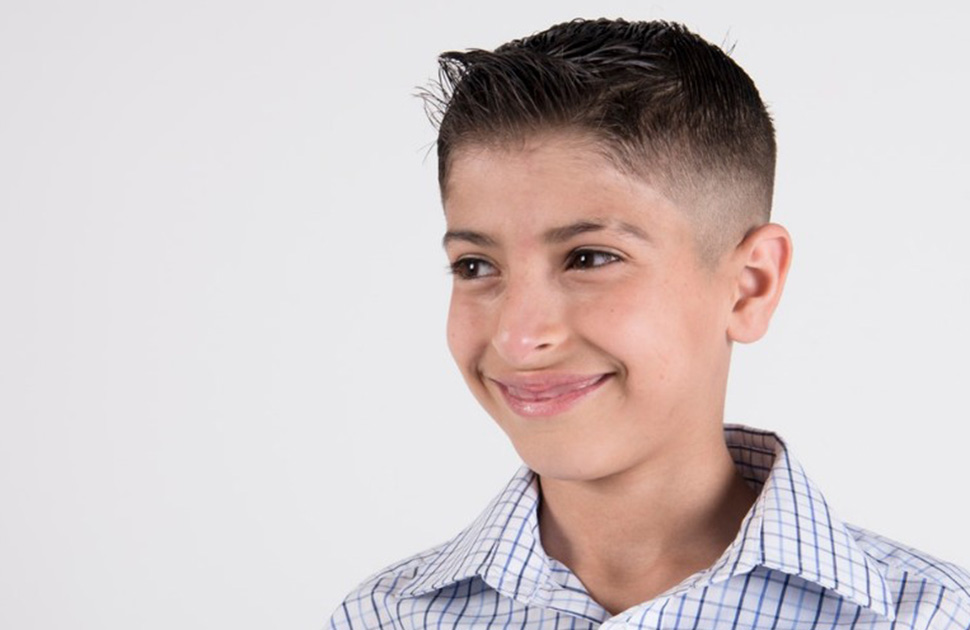OTTAWA, Canada – Jan. 20, 2023 – Contrary to popular belief, rest from school may not always be the best after a concussion, a new study published in JAMA Network Open finds. In fact, an early return to school is associated with a lower symptom burden after suffering a concussion and, ultimately, faster recovery.
“As a pediatric emergency physician who treats hundreds of youths with new and persistent concussion symptoms, I see far too many kids who are told to avoid school until they are symptom-free which can cause more harm and delay the recovery process. The results of this study provide strong evidence that an early return to school is associated with better outcomes,” said Dr. Roger Zemek, Senior Scientist at the CHEO Research Institute, and Professor and Clinical Research Chair in Pediatric Concussion at the University of Ottawa and senior author on the study.
The findings stem from the largest prospective pediatric concussion cohort study with over 3,000 youth aged 5 to 18 in nine pediatric emergency departments in Canada within the Pediatric Emergency Research Canada (PERC) network and was led by Dr. Zemek as the Principal Investigator at the CHEO Research Institute. In this sub-study, the investigators examined 1,600 youth and compared those 1,600 youth who returned to school early (less than two days) versus later while accounting for factors that may influence the timing of the decision to return to school (including symptom burden, prior concussions, etc.). The authors discovered that an early return to school within two days was associated with better recovery at two weeks following the concussion in youth aged 8 to 18 years old, and the related benefit was in-fact greatest in the youth who were most symptomatic.
“This study shows that children should make every effort to return to school even if they are still experiencing symptoms as it will help with their recovery process. Clinicians can confidently inform families that although missing a couple days of school is normal, an extended absence can be more harmful. With good symptom management strategies, school support with accommodations, getting back to school as soon as possible is best,” said Dr. Zemek, who co-leads the Living Guideline for Pediatric Concussion, which provides healthcare professionals diagnosing and managing children and youth with concussions with up-to-date evidence-based clinical recommendations and tools.
The study findings suggest that there could be a mechanism of therapeutic benefit to the early return to school. This could be due to:
-
Early socialization (avoiding effects of isolation);
-
Reduced stress from not missing too much school;
-
Maintaining or returning to a normal sleep/wake schedule;
-
Returning to safe light-to-moderate physical activity sooner (also consistent with previous research led by the CHEO Research Institute).
Given the multitude of other factors that can be expected to influence when a child returns to school after a concussion – including injury severity, specific symptoms, and pre-injury factors – a large sample size and complex statistical analytic approach was required. Future clinical trials and research can help determine how each individual can achieve their own optimal timing for return to school after a concussion.
This study was funded in part by the Canadian Institutes of Health Research.
Reference: Christopher G. Vaughan, PsyD; Andree-Anne Ledoux, PhD; Maegan D. Sady, PhD; Ken Tang, PhD; Keith Owen Yeates, PhD; Gurinder Sangha, MD; Martin H. Osmond, MD; Stephen B. Freedman, MD; Jocelyn Gravel, MD; Isabelle Gagnon, MD; William Craig, MD; Emma Burns, MD; Kathy Boutis, MD;Darcy Beer, MD; Gerard Gioia, PhD; Roger Zemek, MD; for the PERC 5P Concussion Team. Association Between Early Return to School Following Acute Concussion and Symptom Burden at 2 Weeks Postinjury, JAMA Network Open. 2023;6(1):e2251839. doi:10.1001/jamanetworkopen.2022.51839
Media contact:
Jennifer Ruff
Manager of Communications
CHEO Research Institute
(613) 261-3979
jruff@cheo.on.ca
About the CHEO Research Institute
The CHEO Research Institute coordinates the research activities of CHEO and is affiliated with the University of Ottawa. The seven programs of research at CHEO RI focus on a full spectrum of pediatric topics. Key themes include cancer, diabetes, obesity, mental health, emergency medicine, musculoskeletal health, electronic health information and privacy, and genetics of rare disease. At the CHEO Research Institute, discoveries inspire the best life for every child and youth. For more information, visit cheoresearch.ca.
About CHEO
Based in Canada’s capital, CHEO is a globally renowned health institution with a mission to provide exceptional care and support to children, youth and their families. Opening our doors in 1974, we offer a full range of specialized pediatric care and services to children from eastern and northern Ontario, western Quebec and Nunavut. Our site is home to a hospital, a children’s treatment centre, a school, a research institute, and is affiliated with the University of Ottawa as an academic health science centre. Named Canada’s best health-care employer by Forbes in 2024 and 2025, we are home to more than 6,500 staff, clinicians, scientists and researchers, as well as volunteers – all of whom work together to help children and youth achieve their best lives.





